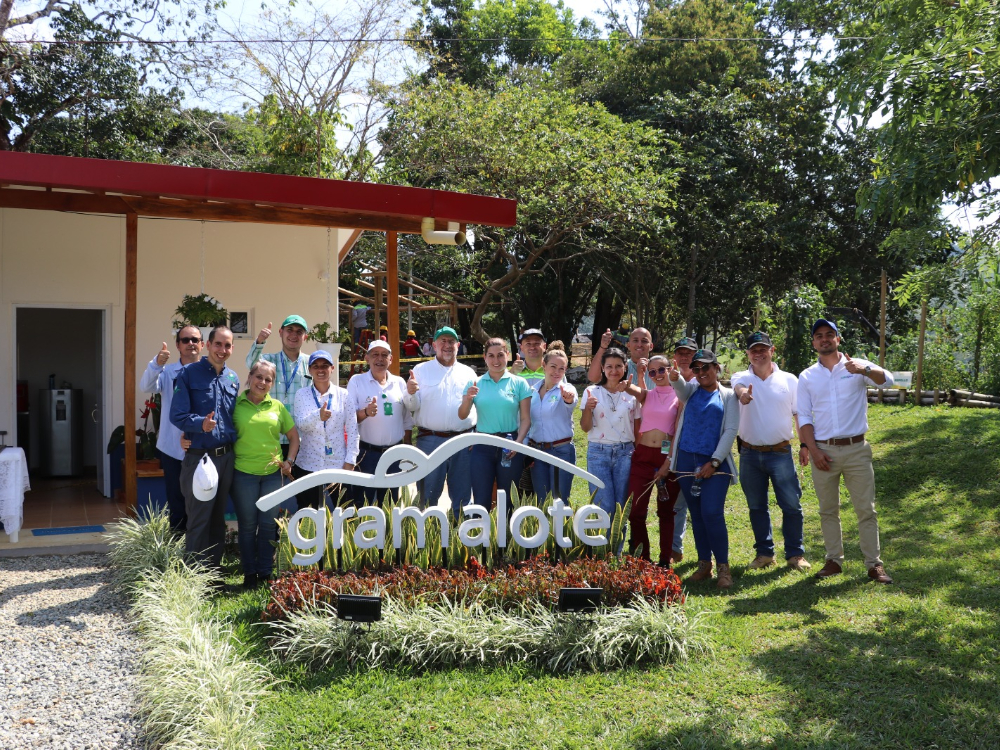- With an investment of close to 1,200 million pesos, this inter-institutional alliance will strengthen the agricultural sector in these subregions, thus, benefiting communities of producers in San Roque and neighboring municipalities.
- The activities proposed in this project will be aimed at strengthening a traditional crop in the region, such as sugarcane for panela production, and the agronomic evaluation and promotion of Tahiti acid lime cultivation based on the agroecological conditions of these subregions.
- The initiative will allow AGROSAVIA to promote the use and adoption of the Technological Offers that it has consolidated during its 30 years of service to Colombian agriculture in panela sugarcane and citrus as tools to improve the conditions of the productive systems.
- Gramalote Colombia strengthens regional development, promoting and supporting initiatives that foster crop improvement and the well-being of the resettled communities and producers surrounding the mining project.
San Roque, Antioquia. April 25, 2023. Corporación Colombiana de Investigación Agropecuaria – AGROSAVIA, through the El Nus Research Center and the company Gramalote Colombia, have launched the agreement entitled "Plan to link the Technological Offers (TO) for panela sugarcane and Tahiti acid lime in the Northeastern and Magdalena Medio subregions of Antioquia."
This inter-institutional alliance will allow the community to access AGROSAVIA's knowledge, TO, and capacities to strengthen the rural economy of San Roque and its neighboring municipalities surrounding the mining project. This will be done by strengthening and empowering the agricultural sector to benefit the communities.
Óscar Saldarriaga, Assistant Country Manager of Gramalote Colombia, says, "Mining is ephemeral; agriculture stays in the territory. We are betting on the agricultural project with our Gramalote Farm because we want to boost agriculture in the region and bring new options. Mining and agriculture have historically coexisted in the territories. We work with AGROSAVIA because the knowledge they have acquired in their 30 years of existence is essential to us. Gramalote believes in regional development and joins this initiative in favor of the communities that surround our project. Agriculture unites us."
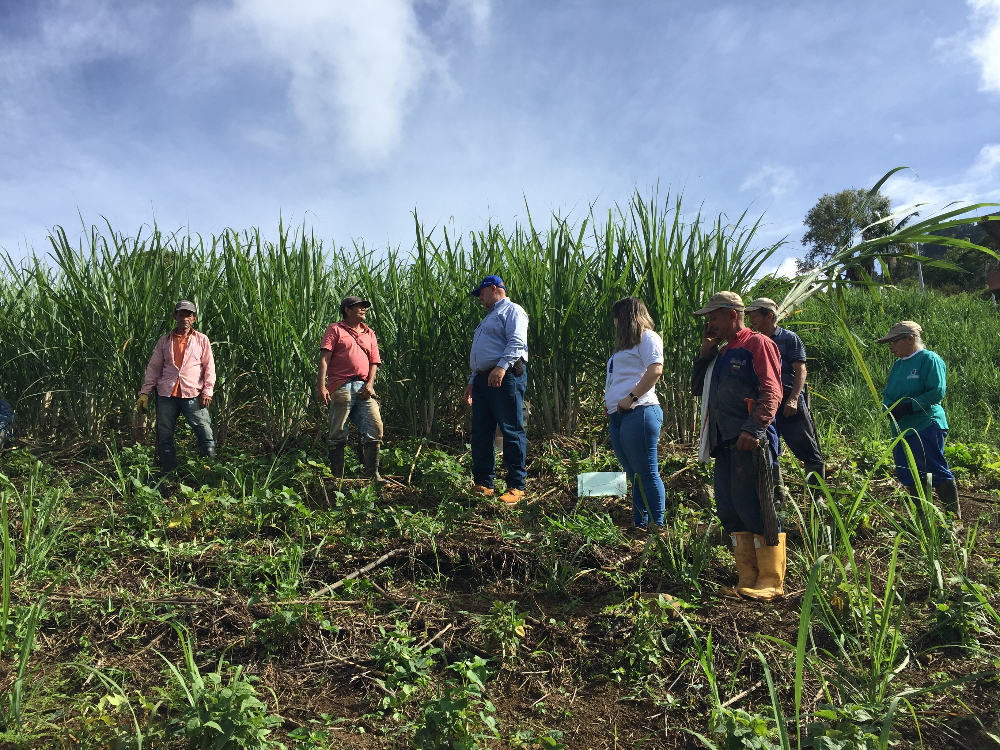
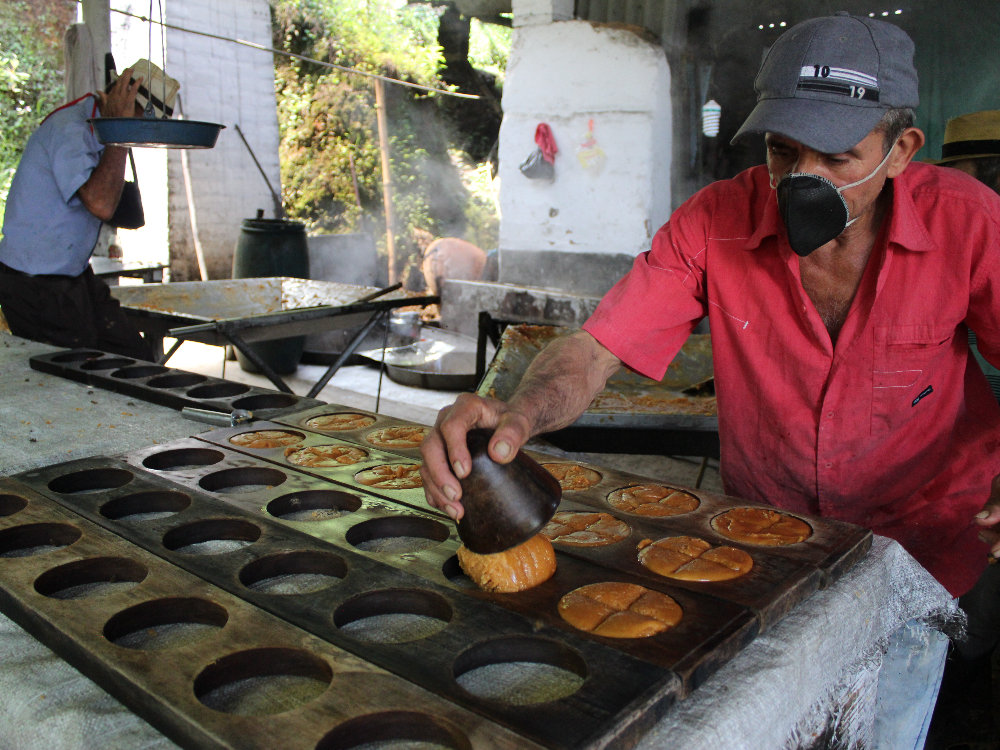
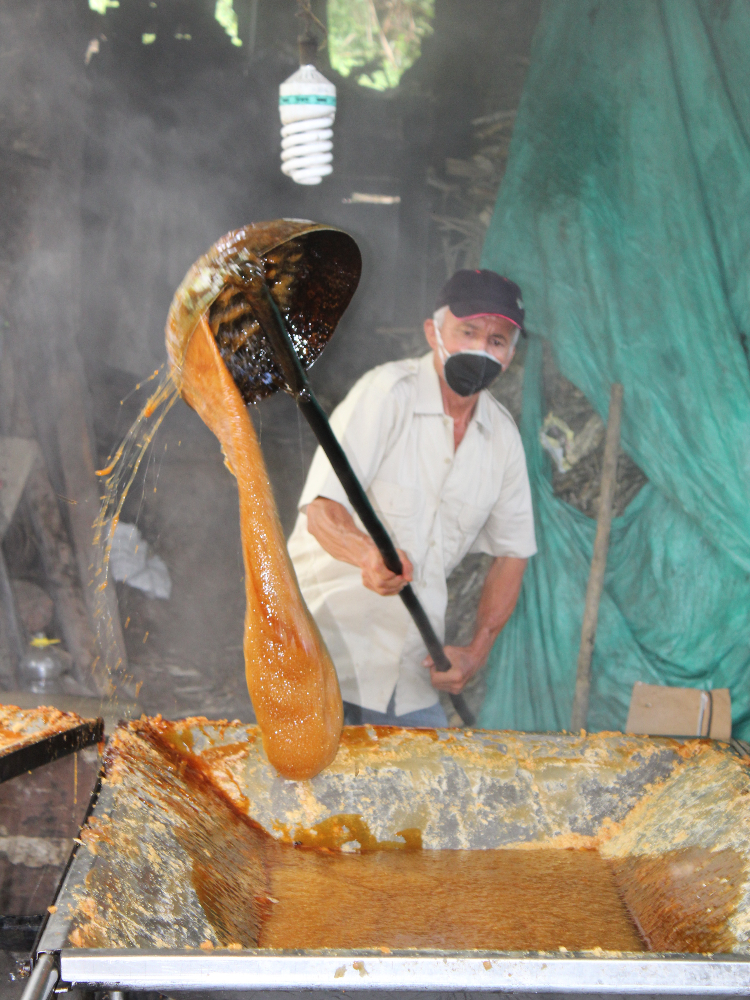
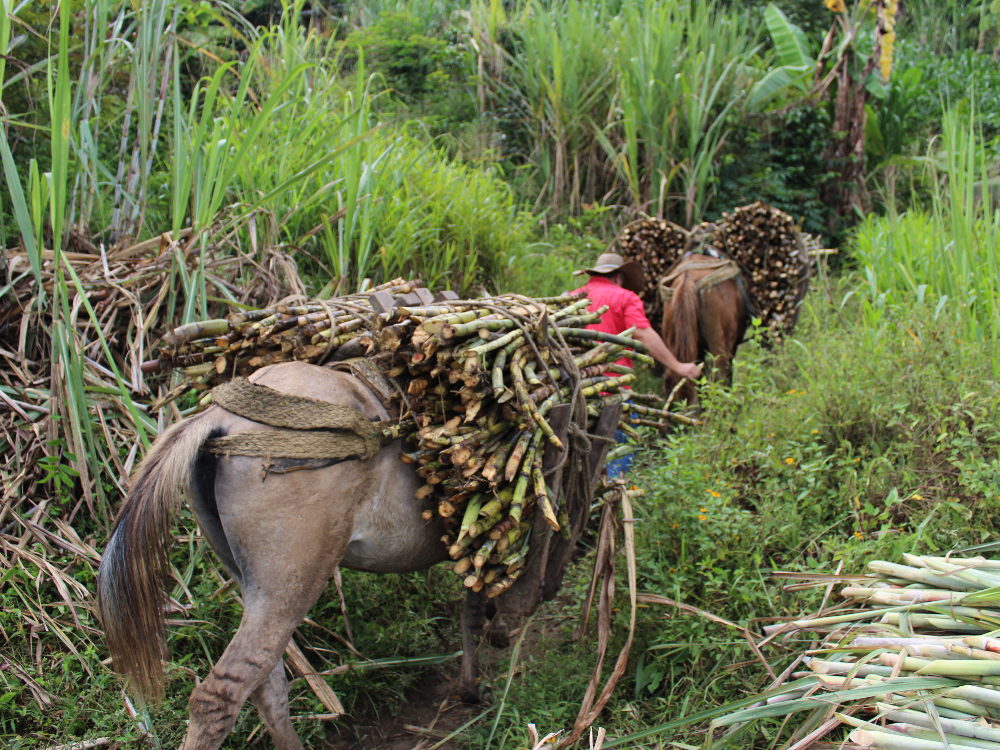
The activities proposed by this agreement will be aimed at strengthening a traditional crop in the region, such as sugarcane for panela production, and the agronomic evaluation and promotion of Tahiti acid lime cultivation based on the agroecological conditions of these two subregions.
This intervention seeks to improve agronomic management for agricultural production according to the agroecological conditions of the Northeastern and Magdalena Medio regions of Antioquia, strengthen the food security of its inhabitants, and take advantage of commercial opportunities aligned with the export offer of the department. According to figures from the Secretariat of Agriculture and Rural Development of Antioquia, Tahiti lime is the most exported fruit from the territory after banana and avocado.
The results of the research, products, and services that AGROSAVIA has consolidated during its 30 years of service to Colombian agriculture have allowed the structuring of an impressive portfolio of Technological Offers in sugarcane and citrus, promoting their use and adoption as tools for producers, technical assistants, and extension agents, and improve the conditions of the productive systems tending to achieve their competitiveness and sustainability.
Juan Gonzalo López L., Research Professional at AGROSAVIA, mentioned, "It is a very ambitious project to improve sugarcane production and yield in four communities of San Roque, with good agricultural practices and technology transfer. We want to go from an average of 35 tons of sugarcane per hectare to 60 or 80 tons; and from 4.6 tons of panela to an average production of 6 to 8 tons."
For panela sugarcane cultivation, a Linkage Plan with the TO of the Corporation, including recommendations, protocols, and methodologies, has been launched. These will allow optimizing resources and promoting integrated crop management framed in good agricultural and manufacturing practices, complemented with bio-inputs and equipment to strengthen the region's productive system.
According to Juan David Hernández, M.Sc. Researcher at AGROSAVIA, "For several years, the Corporation has been working on generating various production models. We want to work with Tahiti acid lime in the Northeastern and Magdalena Medio regions due to the good agroclimatic offer and taking advantage of the fact that it has a lot of potential for national and international markets. In recent years, price increases and the shortage of this fruit worldwide have been presented as an export opportunity. Many countries use this lime for cocktails; others use it for seasoning food; meanwhile, in Colombia, it is used mainly for fresh consumption and food preparation."
In this way, for 48 months and with an investment of close to 1,200 million pesos, agriculture unites AGROSAVIA and Gramalote Colombia to implement agricultural initiatives that allow technology transfer to producers that surround the Gramalote mining project in the Northeastern and Magdalena Medio regions of Antioquia, to strengthen the production of panela sugarcane as a food security strategy for the communities. The expectation is to consolidate the cultivation of acid Tahiti lime for export.
The technological update and training for sugarcane producers and harvesters have already started. These activities, accompanied by the assembly of demonstration and research plots on their properties and technological visits, will allow them to learn about successful experiences in other regions that could be replicated in their communities, thus, uniting the knowledge and skills of the farmers with the experience and scientific rigor of the researchers and extension agents who will guide these workdays.
The Technological Offers (OT) Linkage Plan for panela sugarcane and Tahiti acid lime in the northeastern and Magdalena Medio sub-regions of Antioquia" has already been socialized with departmental agricultural institutions, representatives of strategic allies in the sub-regions and municipal authorities, who, in addition to supporting the proposal, hope that producers take advantage of the efforts of the entities that promote regional development and the improvement of the well-being of communities. Furthermore, this inter-institutional proposal is expected to become a benchmark and can be replicated and implemented in other regions, envisioning the rural development of other communities.
- More information here:
- Nilsen Sánchez Garzón
- Communications, Identity and Corporate Relations Professional
- Research Center La Selva - El Nus
- Communications, Identity and Corporate Relations Advisory Office
- nasanchez@agrosavia.co
- AGROSAVIA



